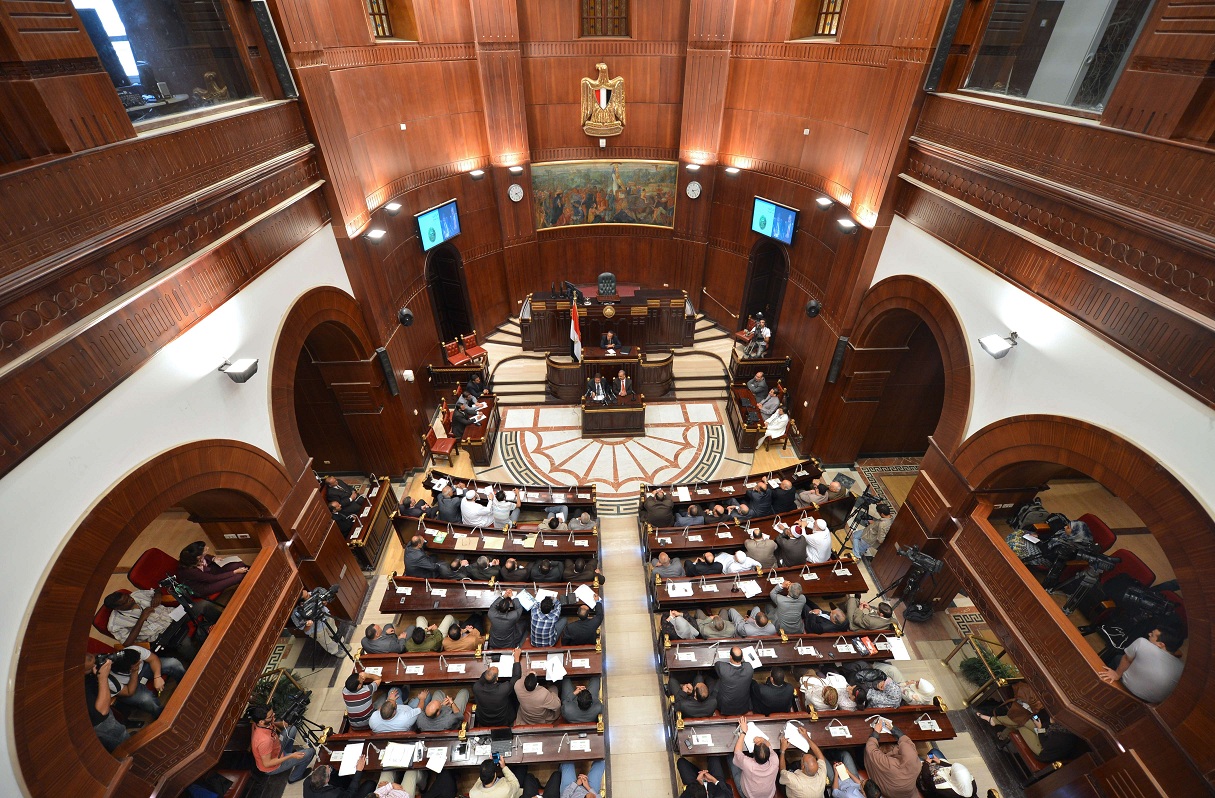
AFP PHOTO / KHALED DESOUKI
President Mohamed Morsy will complete his term after the new constitution is passed according to a released version of the general and transitional articles section of the draft constitution.
Article 7 of the section outlines that the president’s term ends four years from his inauguration and that it counts as one of his allowed maximum of two terms. He will govern according to the provisions of the new constitution once it passes, however.
The provision will likely cause controversy, as several political parties, groups and figures, including third-placed presidential runner up Hamdeen Sabahi, have been calling for new presidential elections following the adoption of a constitution through a nationwide referendum.
The draft is of the general and transitional articles section of the constitution composed by the system of governance committee of the Constituent Assembly tasked with drafting Egypt’s new constitution.
It has not been finalised, however, as it is yet to be voted upon by the Constituent Assembly at large.
The current Shura Council, which will be renamed the Senate, will also remain in session after the constitution passes, but instead of completing its six-year term it will only sit for only three years according to Article 9. The president will appoint members to vacant positions.
New parliamentary elections for the People’s Assembly, renamed the House of Representatives, will take place 60 days after the constitution passes. The article has left the system of election clause empty for now, as the Constituent Assembly still has not decided whether to include an electoral system in the charter or leave it up to the law.
The position of vice president will be abolished once a new government is formed after parliamentary elections and that government receives a vote of confidence from the House of Representatives.
In semi-presidential systems of governance, such as the one the Constituent Assembly has adopted for Egypt in the constitution, the position of vice president usually does not exist, with the president being replaced by the prime minister in case of temporary absence or incapacitation, and temporarily replaced by the speaker of one of the houses of parliament until new elections are held in case of resignation, death or permanent incapacitation.
The transitional articles also included one that ensures the current composition of the Supreme Constitutional Court remains as it is currently, with the provisions for appointing Supreme Constitutional Court judges outlined in the new constitution only taking effect upon the retirement of one of the court’s judges.
As for the State Litigation Authority, the transitional articles section includes two proposed ideas, since the Constituent Assembly has not yet reached a final decision.
The first model suggests dissolving the authority within five or ten years and appointing all those who work in it to the public prosecution, with the authority’s duties and powers being transferred to several other authorities, ministries and state apparatuses.
An alternative model suggests that all State Litigation Authority members under a certain age (45, 50 or 55) be transferred to the public prosecution while maintaining their ranks, positions and seniority, with the litigation authority’s senior figures transferring to other bodies like in the first model.






